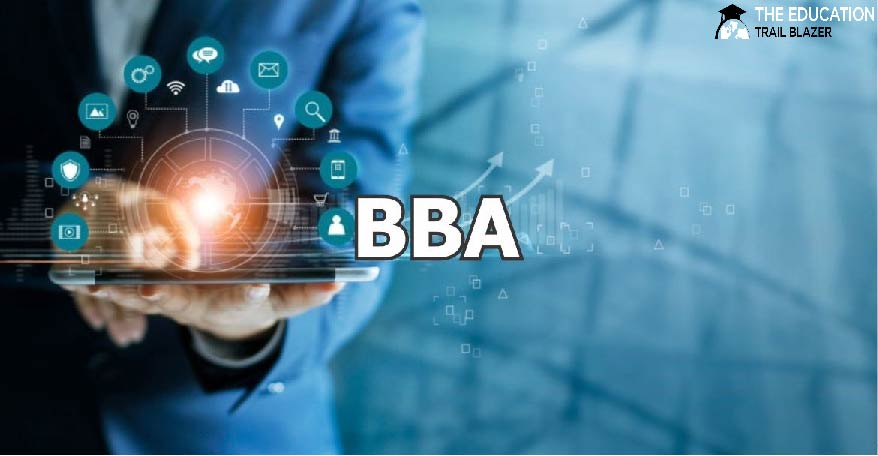Are you interested in pursuing a career in business administration? Do you want to know what are the benefits, challenges, and opportunities of studying BBA Scope in Pakistan? If yes, then you have come to the right place. In this article, we will provide you with a comprehensive guide on the scope of BBA in Pakistan, covering various aspects such as the program structure, career opportunities, industry demand, challenges and competition, BBA programs in Pakistan, and success stories of BBA graduates. By the end of this article, you will have a clear idea of whether BBA is the right choice for you or not.
Introduction to BBA Scope in Pakistan
BBA stands for Bachelor of Business Administration. It is a four-year undergraduate degree program that provides students with a broad knowledge of various aspects of business, such as accounting, finance, marketing, management, economics, human resources, and information technology. BBA is one of the most popular and sought-after degrees in Pakistan, as it prepares students for a wide range of careers in the corporate sector, entrepreneurship, government jobs, non-profit organizations, and academia.
Significance of BBA in Pakistan
BBA is a significant degree in Pakistan because it equips students with the skills and knowledge that are essential for the development and growth of the economy. Pakistan is a developing country that has a lot of potential and opportunities for business and innovation. However, it also faces many challenges and problems such as political instability, corruption, security issues, poverty, unemployment, and low literacy rate. Therefore, there is a need for qualified and competent business administrators who can manage and lead organizations effectively and efficiently. BBA graduates can contribute to the economic and social progress of Pakistan by applying their analytical, problem-solving, decision-making, communication, and leadership skills in various sectors and industries.
BBA Program Structure
Core Courses
The core courses of BBA are designed to provide students with a solid foundation of business concepts and principles. These courses cover topics such as:
- Financial Accounting
- Business Mathematics
- Business Statistics
- Principles of Management
- Principles of Marketing
- Microeconomics
- Macroeconomics
- Business Communication
- Business Ethics
- Business Law
- Organizational Behavior
- Human Resource Management
- Financial Management
- Operations Management
- Management Information Systems
- Strategic Management
Elective Courses
The elective courses of BBA allow students to specialize in a specific area of interest or pursue a minor degree in another discipline. These courses vary from university to university, but some common examples are:
- Marketing Management
- Consumer Behavior
- Advertising and Promotion
- International Marketing
- E-Marketing
- Entrepreneurship
- Small Business Management
- Project Management
- Innovation Management
- Corporate Finance
- Investment Analysis
- Banking and Financial Institutions
- Islamic Banking and Finance
- International Finance
- Cost Accounting
- Managerial Accounting
- Auditing
- Taxation
Internships and Practical Experience
Internships and practical experience are an integral part of the BBA program. They provide students with an opportunity to apply their theoretical knowledge in real-world settings and gain valuable insights into the working environment and culture of different organizations. Internships also help students to develop their professional skills, network with potential employers, and enhance their resume. Most universities require students to complete at least one internship during their BBA program. Some universities also offer students the option to work on projects or research papers under the supervision of faculty members or industry experts.
Career Opportunities
One of the main advantages of studying BBA is that it opens up a plethora of career opportunities for graduates. BBA graduates can work in various sectors and industries such as:
Corporate Sector
The corporate sector is one of the most lucrative and competitive sectors for BBA graduates. It includes multinational companies, national companies, private firms, banks, insurance companies, consulting firms, etc. The corporate sector offers attractive salaries, benefits, incentives, and growth prospects for BBA graduates. However, it also demands high performance, dedication, professionalism, and adaptability from them. Some common job roles for BBA graduates in the corporate sector are:
- Business Analyst
- Marketing Manager
- Sales Manager
- Finance Manager
- Accountant
- Auditor
- Human Resource Manager
- Operations Manager
- Project Manager
- Business Development Manager
Entrepreneurship
Entrepreneurship is another viable option for BBA graduates who have a passion for creating and innovating new products or services. Entrepreneurship allows BBA graduates to be their own boss, set their own goals, work on their own terms, and make a positive impact on society. However, entrepreneurship also involves taking risks, facing uncertainties, overcoming challenges, managing resources, and dealing with competition. Some examples of successful entrepreneurs who have a BBA degree are:
- Mark Zuckerberg: The founder and CEO of Facebook.
- Brian Chesky: The co-founder and CEO of Airbnb.
- Sara Blakely: The founder and CEO of Spanx.
- Jack Dorsey: The co-founder and CEO of Twitter and Square.
- Elon Musk: The founder and CEO of Tesla, SpaceX, and Neuralink.
Government Jobs
Government jobs are another option for BBA graduates who want to serve the public and contribute to the development and welfare of the country. Government jobs offer job security, stability, prestige, and social recognition for BBA graduates. However, they also require passing competitive exams, following rules and regulations, and working under pressure and deadlines. Some common job roles for BBA graduates in the government sector are:
- Civil Servant
- Bank Officer
- Tax Officer
- Auditor
- Accountant
- Budget Analyst
- Economic Analyst
- Policy Analyst
- Public Relations Officer
- Administrative Officer
Non-Profit and NGOs
Non-profit and NGOs are another option for BBA graduates who want to work for a cause and make a difference in the lives of others. Non-profit and NGOs include charitable organizations, social welfare organizations, educational institutions, health care organizations, environmental organizations, etc. They offer BBA graduates a chance to use their skills and knowledge for social good, humanitarian aid, and community development. However, they also require working with limited resources, facing complex problems, and dealing with diverse stakeholders. Some common job roles for BBA graduates in the non-profit and NGOs sector are:
- Program Manager
- Project Coordinator
- Fundraiser
- Grant Writer
- Marketing Manager
- Finance Manager
- Accountant
- Human Resource Manager
- Volunteer Manager
- Researcher
Academia and Research
Academia and research are another option for BBA graduates who have a keen interest in learning and discovering new knowledge. Academia and research include universities, colleges, research institutes, think tanks, etc. They offer BBA graduates an opportunity to pursue higher education, teach students, conduct research, publish papers, and contribute to the advancement of business knowledge. However, they also require obtaining advanced degrees, meeting academic standards, securing funding, and facing competition. Some common job roles for BBA graduates in the academia and research sector are:
- Professor
- Lecturer
- Researcher
- Consultant
- Author
- Editor
Industry Demand for BBA Graduates
The industry demand for BBA graduates is high and increasing in Pakistan. This is because of the following reasons:
Growing Sectors in Pakistan
Pakistan has a number of sectors that are growing rapidly and creating more opportunities for business professionals. Some of these sectors are:
- E-commerce: E-commerce is the buying and selling of goods and services online. It is one of the fastest-growing sectors in Pakistan, with an estimated market size of $2 billion by 2023. E-commerce offers convenience, variety, affordability, and accessibility to consumers and businesses alike. It also creates jobs for BBA graduates in areas such as digital marketing, web development, logistics, customer service, etc.
- Information Technology: Information technology is the use of computers, software, networks, and other devices to store, process, and communicate information. It is one of the most dynamic and innovative sectors in Pakistan, with an estimated export value of $1.5 billion by 2023. Information technology enables businesses to improve their efficiency, productivity, and competitiveness. It also creates jobs for BBA graduates in areas such as software development, data analysis, cybersecurity, etc.
- Tourism: Tourism is the travel of people for leisure, business, or other purposes. It is one of the most promising sectors in Pakistan, with an estimated contribution of 7% to the GDP by 2023. Tourism offers cultural, historical, natural, and religious attractions to visitors from within and outside the country. It also creates jobs for BBA graduates in areas such as hospitality, travel agency, event management, etc.
Specific Job Roles Apart from the general job roles mentioned above, there are some specific job roles that are in high demand for BBA graduates in Pakistan. Some of these job roles are:
- Digital Marketing Specialist: A digital marketing specialist is responsible for planning, executing, and monitoring online marketing campaigns using various channels such as websites, social media, email, search engines, etc. A digital marketing specialist helps businesses to increase their online presence, brand awareness, traffic, leads, and sales. A digital marketing specialist requires skills such as SEO, SEM, SMM, content writing, analytics, etc. The average salary of a digital marketing specialist in Pakistan is Rs 50, 000 per month.
- Business Analyst: A business analyst is responsible for analyzing business problems, needs, and opportunities using various methods such as data collection, interviews, surveys, etc. A business analyst helps businesses to improve their processes, systems, and performance by providing solutions such as recommendations, reports, models, etc. It requires skills such as analytical thinking, problem-solving, communication, documentation, etc. The average salary of a business analyst in Pakistan is Rs 60,000 per month.
- Human Resource Specialist: A human resource specialist is responsible for managing the human capital of an organization, such as recruitment, training, development, compensation, performance appraisal, etc. A human resource specialist helps businesses to attract, retain, motivate, and develop their employees. A human resource specialist requires skills such as interpersonal skills, organizational skills, leadership skills, negotiation skills, etc. The average salary of a human resource specialist in Pakistan is Rs 40,000 per month.
Challenges and Competition
While BBA offers many benefits and opportunities for graduates, it also comes with some challenges and competition. Some of these are:
Competition in the Job Market
The job market for BBA graduates is highly competitive and saturated in Pakistan. This is because of the following reasons:
- High Number of Graduates: BBA is one of the most popular and common degrees in Pakistan. Every year, thousands of students enroll in BBA programs across the country. As a result, there is an oversupply of BBA graduates in the job market, which reduces their chances of getting hired.
- Low Quality of Education: The quality of education for BBA programs varies widely from university to university. Some universities offer high-quality education with qualified faculty, updated curriculum, modern facilities, and industry linkages. However, some universities offer low-quality education with unqualified faculty, outdated curriculum, poor facilities, and no industry linkages. This affects the employability and competitiveness of BBA graduates in the job market.
- Lack of Experience: Most BBA graduates lack practical experience and exposure to the real-world business environment. They rely on theoretical knowledge and academic grades to get jobs. However, employers prefer candidates who have relevant experience and skills that can add value to their organizations.
Skill Development Needs Another challenge for BBA graduates is to keep up with the changing needs and demands of the business world. They need to constantly update and upgrade their skills and knowledge to stay relevant and competitive in the job market. Some of the skills that BBA graduates need to develop are:
- Technical Skills: Technical skills are the specific skills that are required for performing a particular job or task. For example, a digital marketing specialist needs to have skills such as SEO, SEM, SMM, content writing, analytics, etc. Technical skills can be acquired through formal education, training, certification, or self-learning. • Soft Skills: Soft skills are the general skills that are required for working effectively with others and achieving personal and professional goals. For example, a human resource specialist needs to have skills such as interpersonal skills, organizational skills, leadership skills, negotiation skills, etc. Soft skills can be acquired through personal development, mentoring, coaching, or feedback. • Entrepreneurial Skills: Entrepreneurial skills are the skills that are required for creating and innovating new products or services. For example, an entrepreneur needs to have skills such as creativity, risk-taking, vision, passion, perseverance, etc. Entrepreneurial skills can be acquired through exposure, experimentation, networking, or mentoring.
BBA Programs in Pakistan
If you are interested in pursuing a BBA degree in Pakistan, you need to know about the following aspects:
Top Universities Offering BBA
There are many universities that offer BBA programs in Pakistan. However, not all of them are equally reputable and recognized. Some of the top universities that offer high-quality BBA programs in Pakistan are:
- Lahore University of Management Sciences (LUMS): LUMS is one of the leading and prestigious universities in Pakistan. It offers a four-year BBA program that covers core courses such as accounting, finance, marketing, management, economics, etc., as well as elective courses such as entrepreneurship, social innovation, global business, etc. LUMS also offers a dual degree option that allows students to complete both BBA and MBA degrees in five years.
- Institute of Business Administration (IBA): IBA is one of the oldest and renowned universities in Pakistan. It offers a four-year BBA program that covers core courses such as accounting, finance, marketing, management, economics, etc., as well as elective courses such as supply chain management, business analytics, digital marketing, etc. IBA also offers a six-month internship program that provides students with practical experience and exposure to the industry.
- National University of Sciences and Technology (NUST): NUST is one of the top-ranked and respected universities in Pakistan. It offers a four-year BBA program that covers core courses such as accounting, finance, marketing, management, economics, etc., as well as elective courses such as project management, innovation management, international business, etc.
NUST also offers a research project option that allows students to work on a research topic under the supervision of a faculty member.
Admission Requirements
The admission requirements for BBA programs vary from university to university, but some common requirements are:
- Academic Qualification: The minimum academic qualification for BBA programs is intermediate or equivalent with at least 50% marks. Some universities may also require specific subjects such as mathematics, economics, or commerce.
- Entrance Test: The entrance test for BBA programs is usually based on aptitude, verbal, quantitative, and analytical skills. Some universities may also include subject-specific questions or essays. The entrance test can be conducted by the university itself or by a third-party organization such as NTS or ETS.
- Interview: The interview for BBA programs is usually conducted to assess the personality, communication, motivation, and interest of the candidates. The interview can be conducted by the university faculty, alumni, or industry experts.
Scholarships and Financial Aid
The tuition fee for BBA programs can be quite expensive and unaffordable for many students. However, there are various scholarships and financial aid options available for BBA students in Pakistan. Some of these are:
- Merit-Based Scholarships: Merit-based scholarships are awarded to students who have outstanding academic performance and achievements. These scholarships can cover partial or full tuition fee, depending on the criteria and availability of funds. Some examples of merit-based scholarships are LUMS National Outreach Program, IBA National Talent Hunt Program, NUST Need-Based Scholarship, etc.
- Need-Based Scholarships: Need-based scholarships are awarded to students who have financial constraints and difficulties in paying the tuition fee. These scholarships can cover partial or full tuition fee, depending on the assessment and verification of the financial status of the students. Some examples of need-based scholarships are HEC Need-Based Scholarship, USAID Need-Based Scholarship, PEEF Scholarship, etc.
- Loan Schemes: Loan schemes are offered to students who need financial assistance in paying the tuition fee. These loans are usually interest-free or low-interest and have flexible repayment options. Some examples of loan schemes are National Bank of Pakistan Student Loan Scheme, Meezan Bank Education Loan Scheme, Akhuwat Interest-Free Loan Scheme, etc.
Conclusion
BBA is a versatile and valuable degree that offers a wide scope and bright future for graduates in Pakistan. BBA graduates can work in various sectors and industries such as corporate sector, entrepreneurship, government jobs, non-profit and NGOs, and academia and research. BBA graduates can also pursue higher education or professional certifications to enhance their skills and qualifications. BBA graduates are in high demand in the job market due to the growing sectors and specific job roles that require business skills and knowledge. However, BBA graduates also face challenges and competition due to the high number of graduates, low quality of education, and skill development needs.
What is the application process for the BBA program in Pakistan?
Understanding the application requirements, deadlines, and necessary documentation for applying to BBA programs in Pakistan.
What are the career prospects after completing a BBA in Pakistan?
Exploring the diverse career paths and job opportunities available to BBA graduates in the Pakistani job market.
Are there specialized fields or concentrations within BBA programs in Pakistan?
Delving into the various specializations or concentrations offered within BBA degrees and their relevance to specific career paths.
What is the difference between a BBA and other business-related degrees in Pakistan?
Clarifying the distinctions between BBA, BS in Business, or other related programs to help students make informed educational choices.





